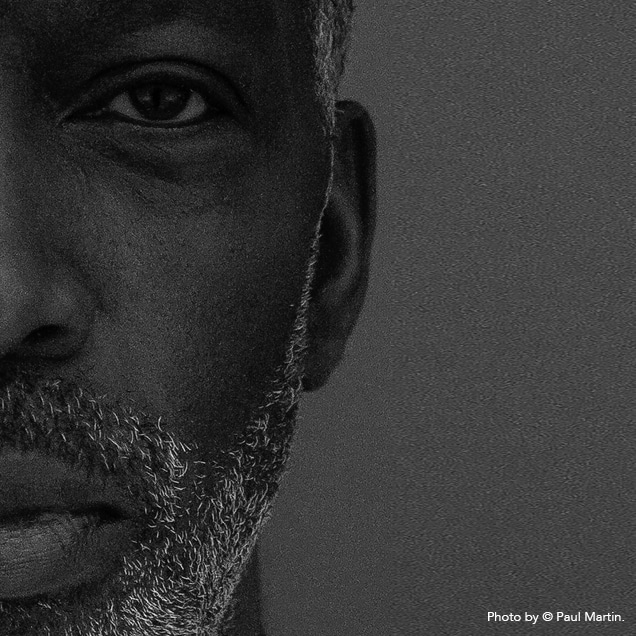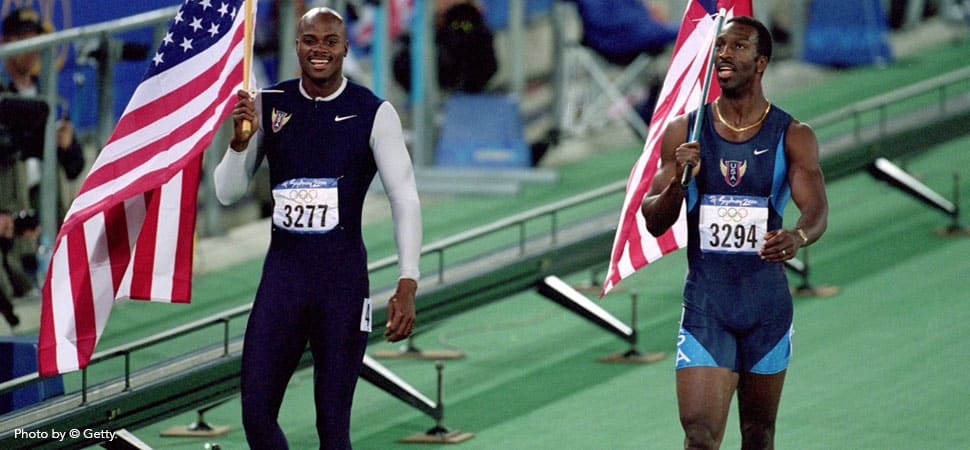There is no question that Michael Johnson is one of the greatest athletes of all time. Four times an Olympic champion and eight times a world champion, over his career he won 12 Olympic and World Championship gold medals and established several Olympic and world records. Our Editor, Julia Pasarón, interviewed him while he was on a recent visit to London and asked him what it takes to succeed in sport, in business, and in life. “Goals are easy,” he says, “succeeding is difficult.”
He retired from competition in 2001 to pursue a career as a media pundit, while also managing one of the contenders to succeed him as king of the track, Jeremy Wariner, who won Olympic gold in the 400m at Athens 2004. Over the last 15 years, though, Johnson has focused most of his energy on his TV career and on his role as a performance adviser and motivational speaker, sharing the strategies he learned as an elite athlete to help others achieve their professional and life ambitions.
“As an athlete, you learn some valuable lessons that can be applied throughout all areas of life. Since you spend a lot of time understanding yourself as a person, you can get the best out of yourself in your sport,” he explains. “You are constantly trying to deliver your best performance under pressure, competing against other athletes and you can’t always win or be in top form.
Learning to deal with loss and overcoming injuries are two of the main challenges an athlete has to deal with.
– Michael Johnson

In Michael’s case, as it is with few athletes at the very pinnacle of the sport, there are also the valuable lessons you learn trying to create history – by achieving things never accomplished before. Michael did just that, most famously in the 1996 Olympics, when, resplendent in his golden Nike shoes, he completed an incredible 200m-400m double, an achievement never matched before or since in men’s athletics. His times were remarkable: 19.32 seconds for the 200m – a world record that stood for 12 years until broken by Jamaican superstar Usain Bolt – and 43.49 seconds for the 400m, which established a new Olympic record.
Calm and softly spoken, Johnson possesses a stillness that I’ve seen before in leaders. He insists the secret for success is to know yourself. “Whether it is as a television pundit, an entrepreneur or a performance speaker, I am always trying to get the best from myself. And for that, I need to keep learning about who I am,” he says. I ask him to give me an example. “My best performances and my records have all come when I’ve been under immense pressure, in an Olympic final or a world championship final. Knowing that about myself [that these situations brought out his best performances] helped me tolerate that extra pressure at key moments in my career and that realisation is a confidence boost in itself.”
Talking about knowing oneself, and how one reacts to pressure, led our conversation on to the subject of performance-enhancing drugs. In 2000, Michael was cheated out of a gold medal at the Sydney Olympics because teammates in the 4 x 400 metres were found to have used banned substances. I can’t help asking him how rife he thinks the drug problem is in the world of athletics. He doesn’t hesitate in his reply: “Unfortunately, there will always be cheating in sport, in the same way that there will always be crime in society. But in the same way that we deal with crime through a strong legal and judiciary system, so we should do with anti-doping legislation and enforcement.”

Michael Johnson on a victory lap with Antonio Pettigrew after winning gold in the 4 x 400m relay at Sydney. Michael would lose the medal as Antonio was guilty of doping. Johnson returned his medal.
Natural-born talents such as Johnson, Bolt or the South African Olympic champion Wayde van Niekerk are few and far between, so the temptation for lesser mortals to use performance enhancing drugs to emulate their achievements is always there. Michael makes his position on this very clear. “Cheating is not the answer. Having a plan B is. With everything in life, you need to plan an alternative in case your first choice doesn’t work. Imagine if everyone that didn’t succeed in their first choice of career went around committing crimes. This is an issue that we have to nip in the bud.”
Michael himself had a “plan B”. Before he began dreaming of Olympic golds he embarked on a marketing degree course at Baylor University in Waco, Texas. In 1987, during his time there, he was scouted by athletics coach Clyde Hart – who coached him to break the university 200m record. But even with this under his belt it still took him a few years to decide to focus full-time on athletics. “Very few people can be a professional athlete and even less get to Olympic level,” he explains, “showing talent as a young person is only a first step. You still have to work incredibly hard and even then, there is no guarantee you’ll make it to the top.”
I work with top executives, leaders in their field, so understanding themselves is fundamental for them to perform at their best and handle the pressure they face every day.
– Michael Johnson
On top of natural talent and top physical condition, Michael believes that professional athletes “have to be exceptionally strong mentally to deal with the pressure that it takes to be at that level, to know themselves and to get the best from themselves”. These are qualities common to eminent professionals in any path of life, which is why Michael is so well equipped to work with them as a performance adviser. “Each one of the individuals I work with are top executives, often leaders in their field, so understanding themselves is fundamental for them to perform at their best and handle the pressure they face every day.”
Obviously, a “one-size-fits-all” approach does not apply in this work so a large part of what Michael does is understanding each client’s journey up to the point when they meet him. “It is only when I understand them as an individual, understand their strengths and weaknesses, and where their confidence comes from, that I can really start my work with them as a performance adviser and help them get the very best from themselves. Companies such as JP Morgan, Airbnb and AstraZeneca have trusted Michael with their top executives. “Having goals is easy, succeeding is the difficult part,” he states, “and that is what I help them do.”














Show Comments +